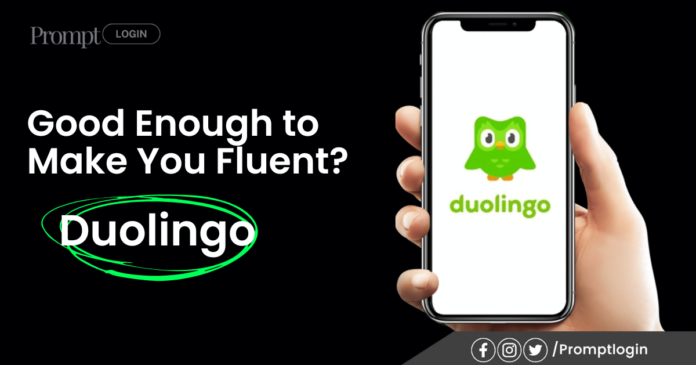Language learning applications have revolutionized the way we approach new languages, and Duolingo is definitely one of the most popular applications today. Its gamified lessons and easy interface have attracted millions of users worldwide. Is Duolingo good enough to make you fluent? This article explores that very question while covering related questions like whether it’s worth learning from Duolingo, its disadvantages, and how it works for particular languages like English, German, and Japanese.
Why is Duolingo so Popular?
Duolingo’s success can be attributed to its simplicity and engaging design. The app delivers short, interactive lessons to keep learners motivated. Whether you are a beginner discovering a new language or brushing up on your skills, Duolingo has the perfect platform to suit every busy schedule.
Key Features of Duolingo:
- Gamified Learning: Points, streaks, and rewards make learning fun and addictive.
- Over 40 Languages: Duolingo offers courses in over 40 languages, which includes niche ones like Hawaiian and Welsh.
- Free to Use: Though it does have a paid version, the core functionality is mostly free.
- Accessibility: Duolingo is available both on mobile and on the desktop so that one can learn anywhere.
Can I Learn to Be Fluent Using Duolingo?
The million-dollar question: Can Duolingo make me fluent? The answer depends on what you think fluency is.
Fluency does not mean only knowing grammar and vocabulary but also being able to carry a conversation naturally in real-time. Duolingo is really good at giving one a foundation in the language. It teaches beginners the basic vocabulary, grammar, and sentence structure. One cannot, however, get fluent through this app alone.
Why Duolingo Alone is Not Enough:
- Lack of Speaking Immersion: Duolingo doesn’t do much to help you improve your speaking, which is an important part of becoming fluent.
- Translation Exercises: Most of the exercises are translating phrases rather than thinking in the target language.
- No Cultural Context: A language requires cultural nuances, which Duolingo does not really drive home.
While Duolingo is a fantastic starting point, supplementing it with other resources, such as conversational practice with native speakers or immersive experiences, is crucial for true fluency.
Is It Worth Learning from Duolingo?
For beginners and casual learners, Duolingo is absolutely worth it. It’s an excellent way to dip your toes into a new language without any financial commitment. The app’s bite-sized lessons make it easy to stay consistent, which is often the biggest hurdle in language learning.
However, for intermediate and advanced learners, Duolingo might feel limiting. At that stage, you’ll need to rely on more robust tools like language exchange apps, grammar textbooks, or even online courses.
What Are the Disadvantages of Duolingo?
While Duolingo has many strengths, it’s not without its flaws:
- Repetitive Exercises: Some users find the exercises too repetitive, which can become monotonous over time.
- Limited Advanced Content: Duolingo’s lessons don’t go beyond an intermediate level, leaving advanced learners searching for other resources.
- Inconsistent Quality: The quality of courses varies depending on the language, as they’re developed by volunteers.
- Ads in Free Version: Frequent ads can disturb the learning process for free version users.
Is Duolingo Good for Specific Languages?
Let’s have a closer look at how Duolingo performs for some of the most popular languages:
Is Duolingo Good for English?
Yes, Duolingo is great for learning English, mainly for non-native speakers who require a structured and friendly approach to beginners. It provides an excellent vocabulary and grammar base.
Is Duolingo Good for Germans?
Duolingo is considered a good option when it comes to the German course because it goes deeper into the grammar rules, verb conjugations, and sentence structures. However, speaking and understanding complex texts requires more than that.
Is Duolingo Good for Japanese?
The Japanese language is one of the more difficult ones in Duolingo because of the three different writing systems present in it: Hiragana, Katakana, and Kanji. It’s still useful for memorizing a few words and grammar but cannot be learned in-depth on Duolingo, only through deep study and proper speaking practice.
What is the hardest language to learn in Duolingo?
How hard is a language? This depends on, say, your mother tongue and the intricacies of the language. Arabic, Mandarin, and Japanese English speakers are particularly more difficult to learn since their alphabets and grammatical rules are unique.
Duolingo provides the foundation, but those languages require much external studying.
Is Duolingo Safe?
Yes, it’s safe to use Duolingo. It does not ask for sensitive information; its community guidelines create a safe learning environment. Again, though, just as with any app, be mindful of how much time your child spends using the application.
Is Duolingo Free?
The good thing about Duolingo is that it’s free. As such, millions have signed up for the free account. The free account is ad-supported, and this doesn’t get too invasive. If you’re going to pay for the premium subscription, which is known as Duolingo Plus, you won’t see ads, nor will you lose access to its offline lessons.
Also Read: Mastering AI for Greater Search Visibility
Conclusion: Is Duolingo Sufficient Enough to Keep You Fluent?
Duolingo is a great way to start learning a new language: engaging, free, and building a good base in multiple languages. It isn’t enough, however, to achieve fluency; supplemental efforts like speaking with natives, reading, and spending more time immersed in the target language will be required to master a new tongue truly.
Ready to start your language learning journey? Give Duolingo a try



